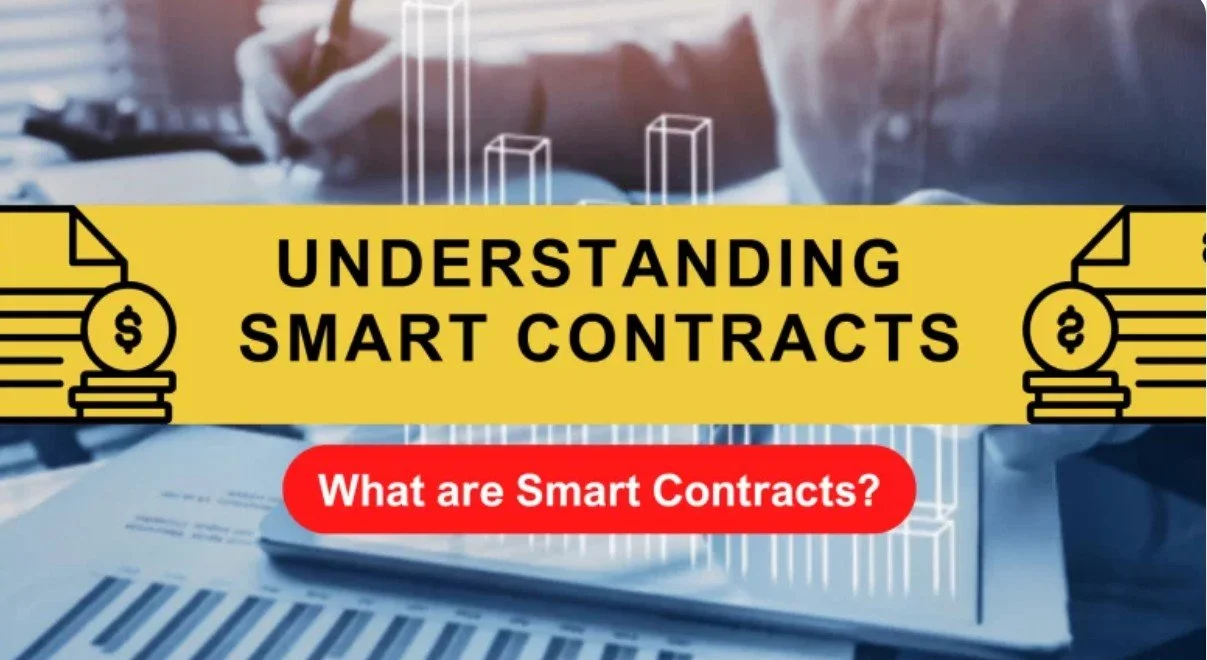📜 Understanding Smart Contracts: The Future of Digital Agreements
In an increasingly digital world, smart contracts are transforming the way we create, verify, and enforce agreements. They cut out middlemen, speed up transactions, and offer a level of security and transparency that traditional contracts often can’t match.
If you’ve heard the term but aren’t sure how it works, this guide will help you understand the what, how, and why of smart contracts—and why they’re poised to revolutionize industries from finance to real estate.
💡 What Are Smart Contracts?
A smart contract is a self-executing program stored on a blockchain that automatically carries out the terms of an agreement once predefined conditions are met.
Instead of relying on lawyers, banks, or brokers, smart contracts use code to handle the logic of the agreement. This means:
No manual processing
No middlemen fees
No delays from paperwork
⚙️ How Smart Contracts Work
Think of a smart contract as a “digital vending machine”:
You deposit funds (crypto or token).
The code checks if the conditions are met.
If yes, the contract automatically releases the goods, services, or funds.
Key Components:
Parties involved: The sender and receiver.
Conditions: The rules written in code.
Execution: Automatic, once conditions are satisfied.
Blockchain ledger: Records every action, ensuring transparency.
🔐 Benefits of Smart Contracts
BenefitWhy It MattersSecurityEncrypted and stored on blockchain—difficult to alter.TransparencyTerms are visible to all relevant parties.SpeedAutomates processes that usually take days or weeks.Cost SavingsCuts out intermediaries like banks or brokers.AccuracyRemoves human error in contract execution.
🌍 Real-World Applications
Finance & Banking – Automating loans, insurance payouts, and escrow services.
Real Estate – Transferring property titles instantly once payment is confirmed.
Supply Chain – Tracking goods from production to delivery with verified timestamps.
Healthcare – Managing patient consent and secure medical data sharing.
NFTs & Gaming – Enabling royalties and in-game asset transfers automatically.
⚠️ Challenges and Risks
Coding errors – Bugs in smart contracts can lead to unintended outcomes.
Immutable mistakes – Once deployed, a flawed contract can’t be altered without agreement from all parties.
Legal recognition – Varies across countries, and not all legal systems recognize blockchain agreements.
🔮 The Future of Smart Contracts
As blockchain adoption grows, smart contracts will likely integrate with AI, IoT devices, and cross-chain platforms, making them even more versatile. Imagine:
IoT sensors automatically triggering supply orders.
AI tools auditing smart contracts for security flaws in real time.
✅ Final Thoughts
Smart contracts are more than a tech trend—they’re a foundational shift in how we create trust, exchange value, and conduct business. While the technology is still evolving, the potential for speed, security, and transparency is undeniable.

